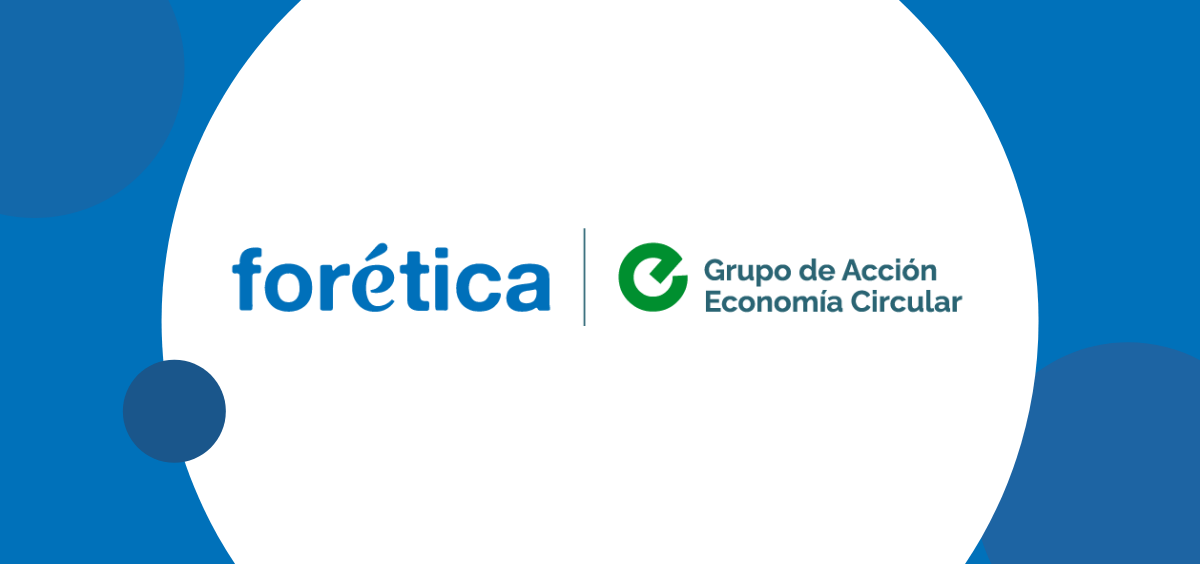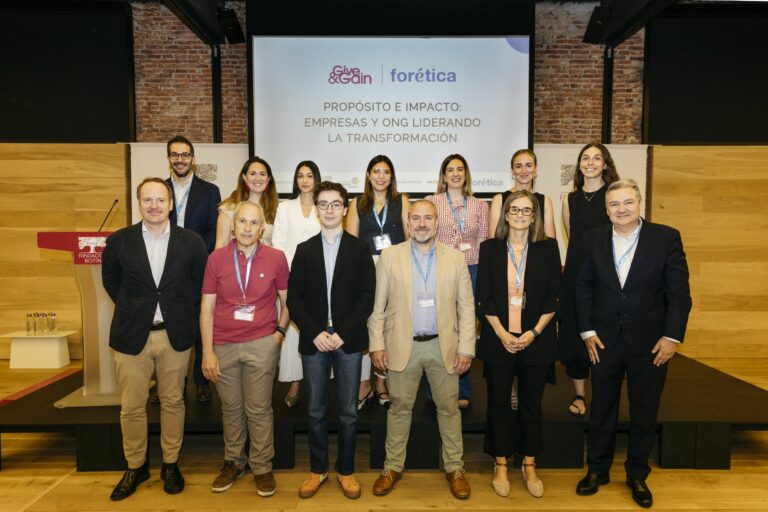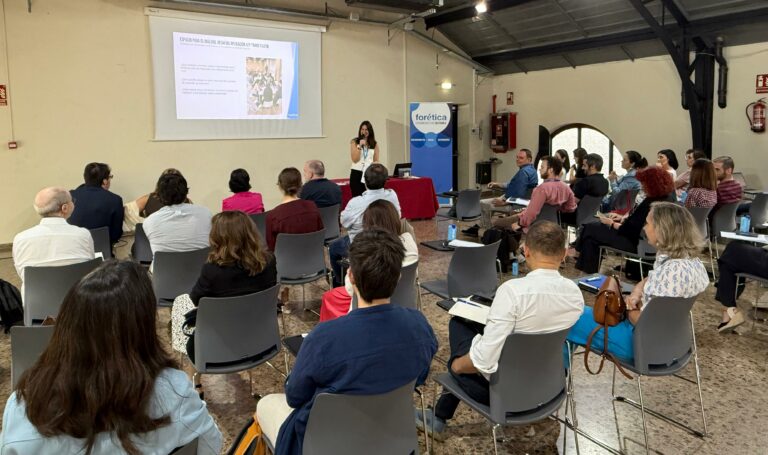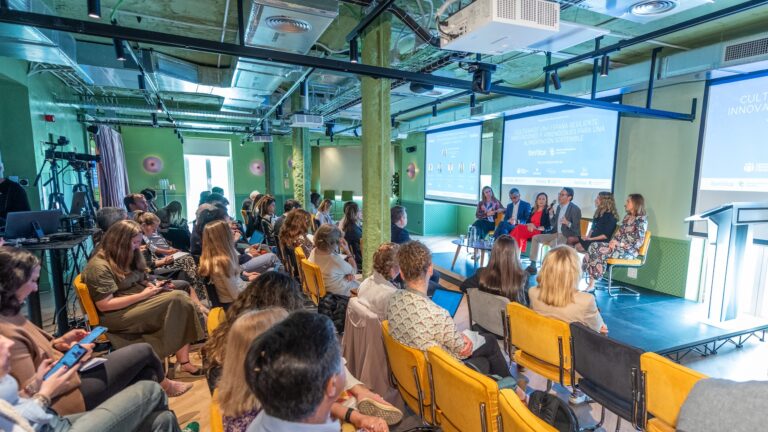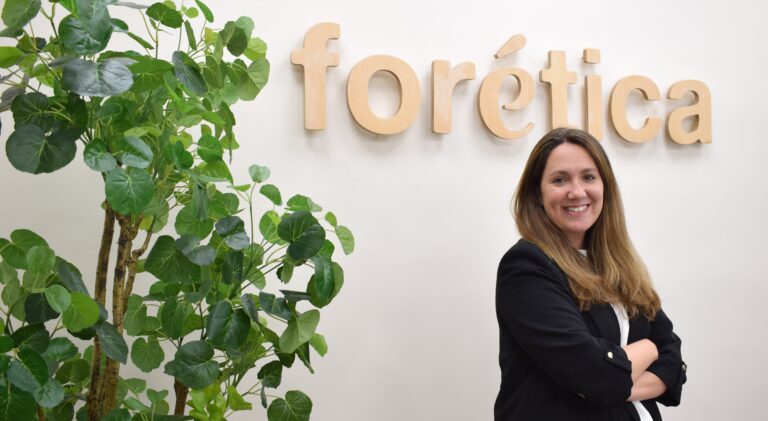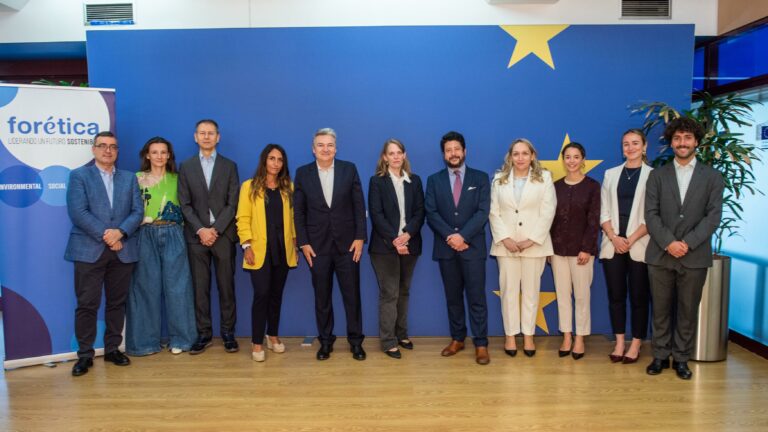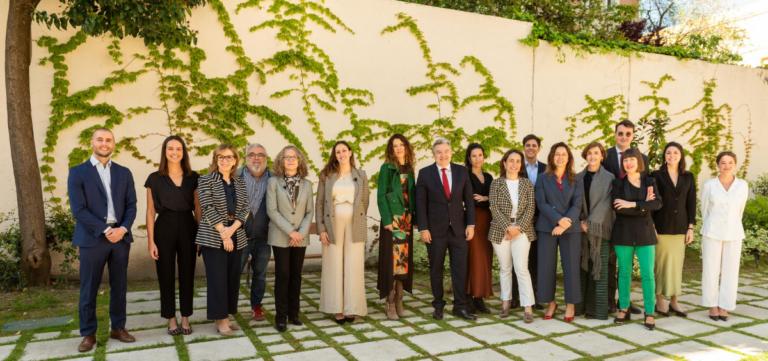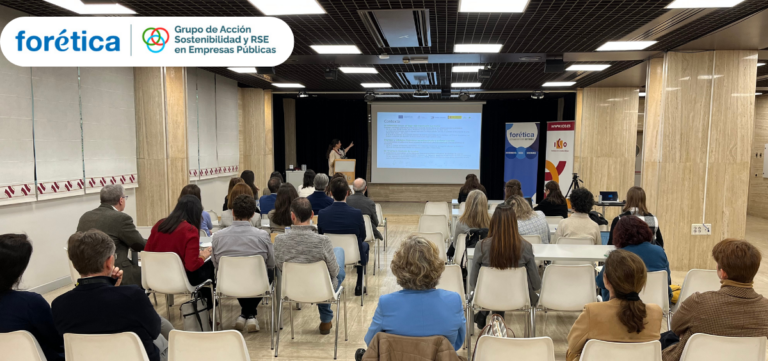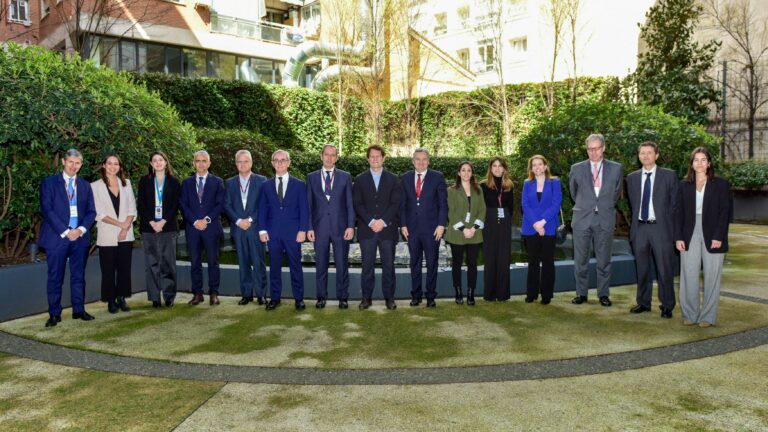- Compuesto por 14 grandes empresas y liderado por Forética, el Grupo de Acción analiza en un informe el contexto actual en materia de políticas públicas y marcos de acción para avanzar hacia un modelo económico circular, las innovaciones que se están llevando a cabo en el ámbito empresarial y las oportunidades de financiación a nivel europeo y nacional
- Tal y como se recoge en el estudio, para conseguir el desarrollo de un verdadero ecosistema que haga posible la puesta en marcha de un modelo económico más circular, es necesario impulsar la innovación en las empresas a través de cuatro fases: redefinir el propósito, identificar el alcance, implementar sus estrategias y buscar la escalabilidad de sus innovaciones
El ’Grupo de Acción en Economía Circular’, liderado por Forética y compuesto por 14 grandes empresas –Airbus, Cerealto Siro, Ecoembes, EDP, Endesa, Epson, Grupo Antolín, LafargeHolcim, L’Oréal, Mahou San Miguel, Naturgy, Nestlé, Red Eléctrica de España y Saica-, presenta un informe que analiza la importancia de la innovación empresarial y la financiación como palancas clave para acelerar la transformación circular.
En el contexto actual, el 70% de todas las emisiones globales de gases de efecto invernadero están relacionadas con el manejo y uso de materiales (de acuerdo con los datos recogidos en The Circularity GAP Report 2022). Minimizar la extracción y el uso de materias primas en un 28% permitiría reducir las emisiones de gases de efecto invernadero en un 39%, con el objetivo de cumplir el Acuerdo de París y no superar el aumento de temperatura en más de 1,5°C a final de siglo, como destaca el mismo informe. Todo ello teniendo en cuenta que, según alerta la Organización para la Cooperación y el Desarrollo Económicos (OCDE) en su Global Material Resources Outlook to 2060, la población y el crecimiento económico están en camino de duplicar el consumo global de materiales para 2060.
A nivel nacional, nuestro país avanza estratégicamente hacia un modelo más sostenible, con la hoja de ruta que marca la Estrategia ‘España Circular 2030’, las nuevas políticas públicas, como la Ley de Residuos y Suelos Contaminados, además de una ola de financiación que permitirá que España acelere su avance en la transición circular, oportunidad clave para las empresas de todos los sectores.
Ana Herrero, Directora de Proyectos y Servicios de Forética, afirma: “Los datos de la ciencia nos muestran que existen riesgos urgentes asociados a la degradación del planeta, que ponen la presión sobre los límites planetarios y nos ubican en una posición de incertidumbre. Como destaca la hoja de ruta ‘Visión 2050. El momento de la transformación’ -lanzada recientemente en el marco del Consejo Empresarial Español para el Desarrollo Sostenible– una de las transformaciones sistémicas clave en la llamada ‘Década de la Acción’ pasa por transformar la manera en la que utilizamos los productos y materiales. La economía circular se posiciona así como una respuesta a los grandes retos ambientales y sociales a los que nos enfrentamos, y necesitamos que la transición sea planificada, innovadora y escalable. Sin duda, el contexto actual urge a potenciar esta innovación por parte de las empresas e impulsar el acceso a la financiación como dos elementos muy relevantes en el avance hacia la circularidad”.
Ambición y acción empresarial hacia un modelo económico circular
El informe publicado por Forética en el marco del Grupo de Acción analiza el actual y cambiante contexto en materia de políticas públicas y marcos de acción para avanzar hacia un modelo económico circular, las innovaciones que están llevando a cabo las empresas en materia de producto, proceso y con su cadena de valor, y las oportunidades de financiación para conseguir que Europa y, concretamente España, puedan caminar hacia una recuperación verde y sostenible.
Elena Ruiz, Manager del Grupo de Acción en Economía Circular de Forética, destaca: “En materia de financiación circular, los datos nos muestran que todavía estamos operando en un modelo lineal y que, si bien hay un creciente protagonismo en el sector financiero de la economía circular (a través de bonos verdes o bonos de transición, entre otros mecanismos), todavía parece no ser suficiente, tanto en cantidad como en segmentación de actividades clave que permitan desprenderse de un modelo de producción y consumo lineal. Ante este contexto, con el objetivo de conseguir el desarrollo de un verdadero ecosistema que haga posible la puesta en marcha de un modelo económico más circular, desde el Grupo de Acción destacamos la importancia de impulsar la innovación en las empresas a través de cuatro fases: redefinir el propósito, identificar el alcance, implementar sus estrategias y buscar la escalabilidad de sus innovaciones. Esta hoja de ruta marcará la senda para definir un ecosistema innovador y circular que permita articular a todos los agentes y hacer una realidad este cambio de modelo”.
El encuentro organizado por Forética en el marco del Grupo de Acción ha contado con la participación de las empresas miembro del Grupo de Acción que han compartido su visión, experiencias y gestión en materia de economía circular en sus propias organizaciones desde la perspectiva de innovación, con la intervención de Gema María Plaza, área de Medio Ambiente de Airbus; Carolina Martín, Head of Market Intelligence & Process Innovation de Cerealto Siro; Beatriz Aylagas, Responsable de RSC y Sostenibilidad en Ecoembes; Ana Álvarez, Directora de Medio Ambiente de EDP España; Tomás Muñoz, Jefe de la Central de Endesa en Melilla; Enrique Fernández-Castaño, Standardization & Capacity Investments Manager para Norte América de Grupo Antolín; Javier Alández, Director Gerente de Geocycle (Grupo LafargeHolcim); Delia García, Directora de Sostenibilidad y RSC de L’Oréal España y Portugal; Cristina Pérez, Project Manager de Sostenibilidad en Mahou San Miguel; Nieves Cifuentes, Responsable Corporativa de Medioambiente de Naturgy; Pedro Ruiz, Especialista en Sostenibilidad Ambiental de Nestlé; Leticia González, Dirección de Relaciones Institucionales y Sostenibilidad de Red Eléctrica de España; y Myriam Portillo, Directora Comercial y de Marketing de España y Portugal de Saica.
El Grupo de Acción en Economía Circular constituye el punto de encuentro empresarial de liderazgo, conocimiento y diálogo para poner en valor la importancia de desarrollar modelos de negocio circulares.
En ediciones anteriores, el Grupo de Acción presentó un documento de posicionamiento que incluye una serie de recomendaciones para acelerar la acción empresarial hacia una España más circular en 2030, articuladas bajo tres ejes que serán clave para el cambio de modelo que permita avanzar hacia un ecosistema más circular: la mejora de la gobernanza, la aceleración de la acción y el impulso de alianzas de impacto. Además, Forética publicó en el marco del Grupo de Acción el informe ‘Máxima ambición circular para la Década de la Acción’.
Además, el Grupo de Acción trabajó en abordar la transición empresarial hacia la nueva economía de los plásticos, con los siguientes informes publicados: ‘Ambición empresarial para avanzar hacia la nueva economía de plásticos’ y la ‘La realidad de los plásticos: mitos y verdades’. También abordó las métricas e indicadores, tras enfocarse en el business case de la economía circular, analizando retos y oportunidades en este ámbito, y colaborar con el WBCSD en la guía para CEOs sobre economía circular.

